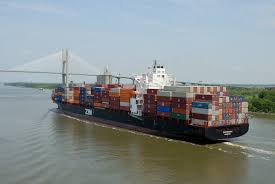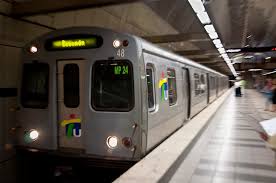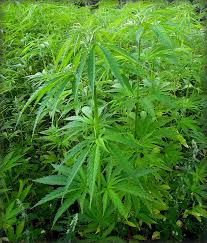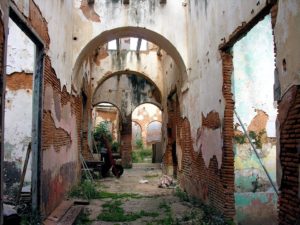Puerto Rico is slowly making a recovery. But how does it go beyond this? Can actions we take today help avoid the same after-effects of a future hurricane maria? Can Puerto Rico come out stronger after the hurricane Hurricane Maria than they were beforehand? There is much that the Puerto Rican government can help with. There are other things that the US government must take action on. And there are things that any person that is willing and able can also help with.
- The US Congress and president MUST repeal the Jones Act. This outdated act of 1918 requires goods from one state to go via US flagged vessels.

The Jones Act is an outdated law that ends up increasing prices of all goods in Puerto Rico. It must be repealed.
The Jones Act does not affect most states, but adversely affects Hawaii, Alaska, Puerto Rico and other US territories, basically trading in free market principles for a protectionist policy that drives up all good coming into Puerto Rico. Trump provided a 10-day freeze on the Jones Act post-Hurricane Maria. This was such a short amount of time, I doubt it had any effect other than to temporarily quiet the people calling for a repeal of the act. Sign the petition to repeal the Jones Act for good!
- Rebuild with green energy/energy independence in mind. Puerto Rico already has one of the highest energy costs in the USA, second only to Hawaii.

Puerto Rico must develop alternative energy sources than oil.
Adopting the legislation proposed by Senator Elizabeth Warren and Bernie Sanders for 100% debt relief, medicare equality, infrastructure rebuilding and green energy would help immensely in getting Puerto Rico to longterm health. Individual homeowners, businesses, and government must find ways to power using solar, wind or other technology. The importation of fossil fuels to then burn in the outdated oil burning plants to supply the island with electrical power on outdated and poorly maintained energy lines is insane. If the Puerto Rican and USA governments are not going to act, then this is up to all of us in Puerto Rico to make this change. Coqui del Mar is committed to investing in full solar power and we are.
- Water independence needs to be a priority as well. It rains about 5 inches per month in the capital region of Puerto Rico, yet there were several days post-Hurricane Maria where there was no drinkable water. Inland, it generally rains even more, but many places 2 months post-Hurricane Maria remain without water. There is a better way, and to find it, one does not have to look far. While St. Thomas was ravaged equally by Hurricane Maria, with the entire island losing electricity (like Puerto Rico as well), what St. Thomas did not lose was their water supply. St. Thomas may be the only place in the world that requires people by law to be responsible for their own water. In St.Thomas, homes that are not connected to city water MUST by law build a cistern at the time the house is constructed. The vast majority of these homes never use anything besides rainwater for all their home purposes, including drinking (if properly treated). Water towers within each community could also help alleviate the water problems that plagued Puerto Rico post-Maria.
- Tax incentives from the US could spur more tourism and investment until Puerto Rico and the US Virgin islands get through the rebuilding phase. Eliminating federal tax on airline or cruise ship travel to these islands would be a start.
- Less reliance on cars. This is another gas burning antiquity.

The Tren Urbano in Puerto Rico needs to be expanded to alleviate traffic and promote tourism.
Puerto Rico had at one point a train that encircled the island (this was used mostly for transportation for the now non-existent sugar cane plantations). There was actually a popular trolley that started in San Juan and continued all the way to Ocean Park (which is part of the reason that Barbosa Park is best known as “El Ultimo Trolley” or the last trolley). Post Maria, car travel was so difficult, as gasoline was close to impossible to buy. People waiting for 4-hour or more gas lines only to be turned away once the supply was sold out. Focusing on public transportation in the densest regions will drastically reduce the dependence on imported fuel and will help keep Puerto Rico mobile after the next disaster.
- The public utilities of water and electric are not efficient and not working, even before Maria. Selling the utilities to private buyers worked in the states and must be done here. The energy company charges its customers more than any other state in the USA (besides Hawaii) and yet still has 9 billion of bond debt and frequent outages, even before Hurricane Maria. Puerto Rico can do better. The water company is equally overpriced with poor infrastructure reinvestment. Puerto Rico runs the gambit of flooding until a few months later, droughts set in. The water reservoir remains un-dredged and annually continues to fill in with dirt, providing an ever gradual smaller reservoir. The public utilities have political appointees that are never in office long enough to complete any long-term planning, and anything accomplished by one administration is undone by the next. It’s time to change this.
-

Marijuana should be legalized immediately in Puerto Rico for recreational use. The economy cannot wait.
Legalize Marijuana. Medical marijuana is already legal here, but this does not work for tourists, as the process to get approved for medical marijuana is long and somewhat complicated. To incentify tourism and to cash in on marijuana tourism, legalize and tax now! Just look at Colorado as an example of how this simple step can bring in money to the coffers. Puerto Rico boasts an ideal climate for growing marijuana and the many Puerto Rican farmers are hurting badly post Hurricane Maria. Legalizing marijuana makes sense.
- The local government must pass laws to rid Puerto Rico of the unoccupied homes and buildings.

People have no incentive to sell their unused homes due to the extremely low property tax.
Part of the problem is actually extremely low property tax. If the property tax is significantly increased on abandoned/unoccupied buildings, those that own these properties would finally have to make a decision to either sell it or fix it and get it occupied. Allowing property owners one-year maximum to find a tenant before increasing the property tax would be a fair compromise to the current owners, while also incentifying investment and remodel of the countless abandoned properties. Many of these are prime properties, beach front, in Old San Juan, or in other sought after areas.
- The US Congress owes it to Puerto Rico to seriously discuss Puerto Rico and the US relationship. Puerto Rico has voted twice in the past 5 years for statehood with no response from the US Congress (they voted for statehood in 2012 and 2016). A path to statehood should be outlined so that Puerto Rico can be involved in the ultimate decision and help guide their future. If the EU can bring together countries as diverse as France and Germany, we can outline a path for Puerto Rico to become the 51st state.
- The above are a few ideas that people have been talking about that could help Puerto Rico get on the right track. What do you think?



